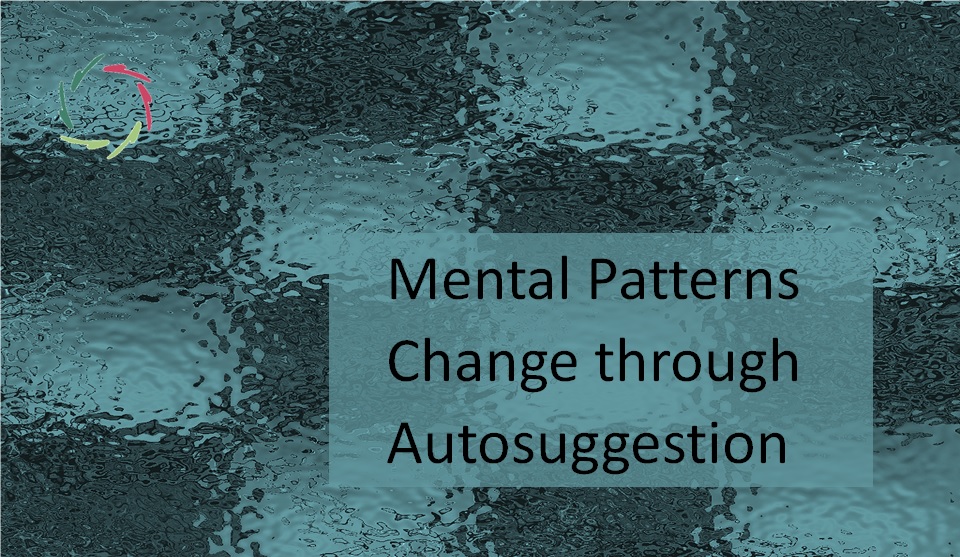Autosuggestion-Related Concepts

Autosuggestion is a transformative method of fostering growth and alignment through the deeper layers of the mind. However, it exists in a landscape of related concepts, each with its own mechanisms, benefits, and pitfalls.
Exploring these similarities and differences highlights the unique qualities of autosuggestion and deepens our understanding of its value.
Autosuggestion: a foundation of freedom and growth
Autosuggestion operates as a gentle, self-directed communication with the deeper layers of the mind. By respecting autonomy and inviting inner-directed change, it serves as a gentle, self-empowering tool.
It is distinct in its approach, avoiding coercion or manipulation while nurturing organic and lasting change. This foundation contrasts starkly with methods like brainwashing or propaganda, which prioritize external control. Unlike coercive methods, autosuggestion is an invitation to self-exploration and growth. It embodies openness and trust, allowing individuals to align with their deeper values. For instance:
- In stress management, autosuggestion helps calm the mind by gently reframing challenges.
- In personal development, it encourages growth by cultivating empowering beliefs and attitudes.
The following are related concepts and their connections:
- Brainwashing
Brainwashing seeks to impose external beliefs through coercion, manipulation, and psychological pressure. It bypasses critical thinking and autonomy, often replacing self-directed beliefs with externally driven ones.
In stark contrast, autosuggestion operates as an invitation to explore and align with one’s inner self, fostering authentic and lasting change.
- Hypnosis
Hypnosis engages the non-conscious, often through externally guided sessions that involve heightened focus or trance-like states.
While it can facilitate therapeutic outcomes, its emphasis on external guidance and occasional suppression of autonomy differs from the self-directed nature of autosuggestion. In AURELIS, techniques aligned with hypnosis are reframed to ensure autonomy and respect for the deeper self.
- Propaganda
Propaganda, like autosuggestion, influences deeply held beliefs.
However, its manipulative nature and external agendas stand in opposition to the ethical foundation of autosuggestion, which respects personal freedom. Autosuggestion fosters critical awareness, enabling resistance to manipulative influences such as propaganda.
- Mindfulness and meditation
Mindfulness emphasizes present-moment awareness without judgment, fostering clarity and calm. Meditation goes further to cultivate specific states of being.
While these practices share a focus on the inner self, autosuggestion adds intentionality, guiding the mind toward specific, desired growth. This difference underscores the proactive role of autosuggestion in comparison to the observational role of mindfulness.
- Subliminal messaging
Subliminal messaging targets the subconscious without conscious awareness, often used for manipulative purposes.
While it shares a focus on the deeper mind with autosuggestion, it operates covertly, whereas autosuggestion is transparent, engaging the individual actively and ethically.
- Therapeutic communication
Methods like motivational interviewing and psychotherapy respect autonomy and guide personal transformation.
While they share similarities with autosuggestion, therapeutic communication involves external facilitation, whereas autosuggestion is entirely self-directed, making it uniquely empowering.
- Cultic influence
Cultic influence blends coercion, brainwashing, and propaganda, fostering dependency and conformity within a group.
Its stark contrast with autosuggestion lies in the latter’s unwavering focus on individual freedom and alignment with inner values.
- Neuro-linguistic programming (NLP)
NLP uses structured language and mental strategies to change behavior and thought patterns. Though it engages the non-conscious like autosuggestion, NLP has been critiqued for lacking scientific validation and ethical rigor.
Autosuggestion remains distinct in its emphasis on respect, depth, and alignment with personal values.
- Influence techniques in social psychology
Mechanisms such as compliance, conformity, and obedience highlight the ways individuals adapt to external forces.
Autosuggestion, in contrast, does not seek to influence externally but rather invites internal reflection and growth.
- Conditioning
Classical and operant conditioning shape behavior through external stimuli and consequences.
While autosuggestion and conditioning both engage the non-conscious, conditioning lacks the ethical depth and respect for autonomy inherent in autosuggestion.
- Persuasion
Persuasion seeks to influence thoughts and actions through logic or emotion.
It shares common ground with autosuggestion in respecting autonomy, but it typically focuses on external goals rather than inner alignment.
Summary table
| Concept | Similarities | Key difference from autosuggestion |
| Brainwashing | Engages the subconscious | Coercive; suppresses autonomy |
| Hypnosis | Engages subconscious; uses suggestion | Often externally guided; may suppress free will |
| Propaganda | Influences beliefs | Manipulative; serves external agendas |
| Mindfulness/meditation | Promotes inner focus | Observational rather than directive |
| Subliminal messaging | Targets the subconscious | Covert and passive |
| Therapeutic communication | Respects autonomy | Involves external facilitation |
| Cultic influence | Engages deeper processes | Coercive; fosters dependency |
| NLP | Uses structured strategies | Lacks scientific and ethical depth |
| Social psychology influence | Shapes behavior through interaction | Externally driven; focuses on group dynamics |
| Conditioning | Influences subconscious behavior | Mechanistic and externally imposed |
| Persuasion | Seeks to influence thoughts | Often goal-oriented rather than growth-oriented |
Conclusion
Autosuggestion stands apart as an ethical, empowering, and self-directed tool for personal growth. In a world where many concepts blur the lines between influence and coercion, autosuggestion offers a clear path toward authentic inner alignment. By embracing its principles, individuals can navigate external influences with resilience and connect more deeply to their true selves.
Tools like AurelisOnLine provide structured paths for individuals seeking this transformative journey.


